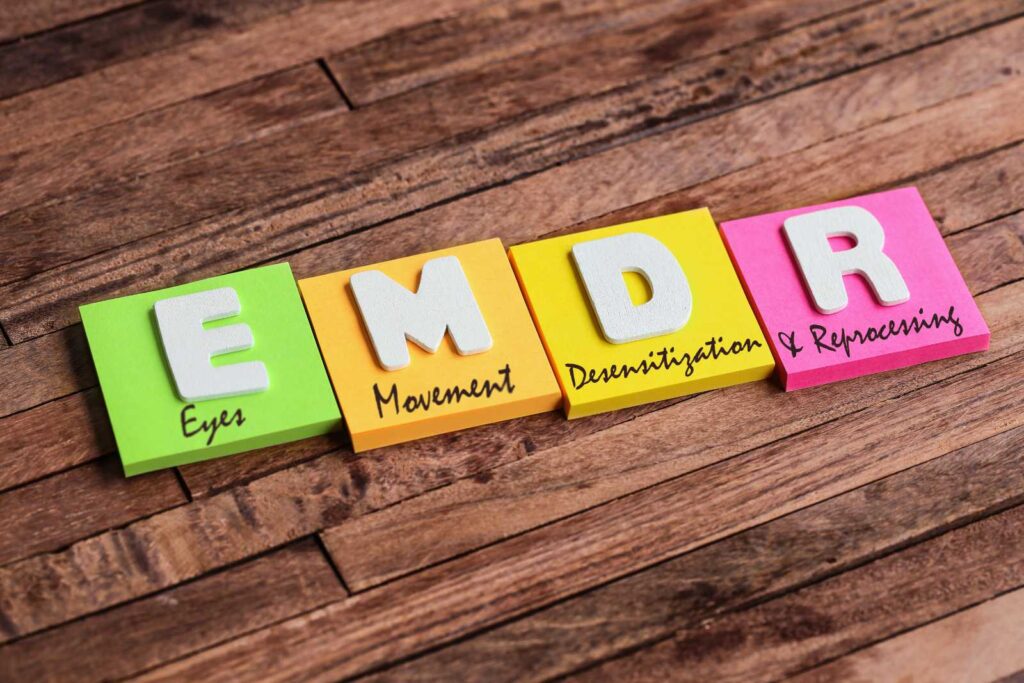
EMDR (Eye Movement Desensitization and Reprocessing) is an evidenced-based psychotherapeutic approach that enables people to heal from the symptoms and emotional distress that are the result of disturbing life experiences. Repeated studies have demonstrated that by using EMDR therapy, people can experience the benefits of psychotherapy that once took years to show improvement.
More recently, EMDR therapy demonstrates that the mind can in fact heal more rapidly from psychological trauma as the body recovers from physical trauma. When you cut your hand, your body works to close and heal the wound. This natural process becomes disrupted when a foreign object or repeated injury to the area irritates the wound resulting in ongoing pain. Effective assessment and ongoing care identify disruptions that may then removed to allow natural healing to resume. EMDR therapy demonstrates a similar sequence of events within mental processes. Under typical conditions, the brain’s information processing system naturally moves toward homeostatic mental health. When this healing system is blocked or imbalanced by the impact of a disturbing event, the emotional wound festers and can cause intense ongoing suffering. This impacts seen across both mental health and physiological process. Once the disturbing event is addressed, healing resumes.
How Does EMDR Work?
EMDR therapy is an eight-phase treatment. Eye movements (or other bilateral stimulation) are used during one part of the session. The clinician determines which memory to target first and asks the client to hold different aspects of that event or thought in mind. The clients eyes track the therapist’s hand as it moves back and forth across the client’s field of vision. As this happens, for reasons believed by a Harvard researcher to be connected with the biological mechanisms involved in Rapid Eye Movement (REM) sleep, internal associations arise and the clients begin to process the memory and disturbing feelings.
With successful EMDR therapy, the meaning of painful events is transformed on an emotional level. For instance, a rape victim shifts from feeling horror and self-disgust to holding the firm belief that, “I survived it and I am strong.” Unlike talk therapy, the insights clients gain in EMDR therapy result not so much from clinical interpretation, but rather, from the client’s own accelerated intellectual and emotional processes. The net effect is that clients conclude EMDR therapy feeling empowered by the very experiences that once debased them. Their wounds have not just closed, they have transformed. Clients’ thoughts, feelings and behavior are all robust indicators of emotional health and resolution.